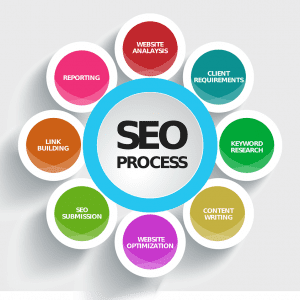Houston’s local SEO services constantly change in today’s fast-paced digital marketing world. With all the options available, it can sometimes get unnecessarily complicated. FPRnetworks is a top-ranked agency aiming to help your company thrive in digital marketing, web development, and search engine optimization.
Get a Free SEO Evaluation
We’re committed to your success. Request an instant SEO review, and one of our in-house SEO specialists will contact you with our findings.
Unlocking the Power of Local SEO Houston
A coveted position on the Google Maps listings for these local businesses is a goal they desire yet rarely achieve. If you’ve found yourself in this position, too, that’s because you’re not alone. While it’s easy to talk about the relevancy of search engine visibility to drive your online presence, it’s equally important to understand how this is achieved. So, what is local SEO?
Deciphering Local SEO process
Local SEO is all about putting your business as high as possible organically in Google Maps. If you’re featured in the top position on Google Maps, you can beat out all of your competition. And it’s easy to see why – only three map listings are shown for each local keyword search (four if Google expands the listings).
The difference with paid advertising is that local is organic – you can’t buy ranking. Instead, you have to earn it. In any search, Google uses over 200 signals, but reviews alone aren’t the answer. Google uses all types of factors to establish credibility. That’s where review generation has to start.
Choose FPRnetworks.com a SEO company in Houston
Founded in 2009, FPRnetworks is Houston’s most successful local SEO specialist. We have helped thousands of businesses in numerous industries build a robust organic foundation and turn their sites into lead-generation machines.
If you are a DWI lawyer, plumber, B2B enterprise, CBD store, or brick-and-mortar business, we can help you with our SEO services. We do it all – and we do it better than anyone else in Houston. Ask our customers—we are the best at local SEO. Search engine optimization is very important to your ranking.
As tricky as the digital world may be, we are here for you. We are always with you!
FPRnetworks is here to help you through the pros and cons of Houston’s local SEO. Let us help you excel in your business and lead the way.
Call us today at 832-462-0138 for a free SEO audit. See what FPRnetworks can do for your business online.

